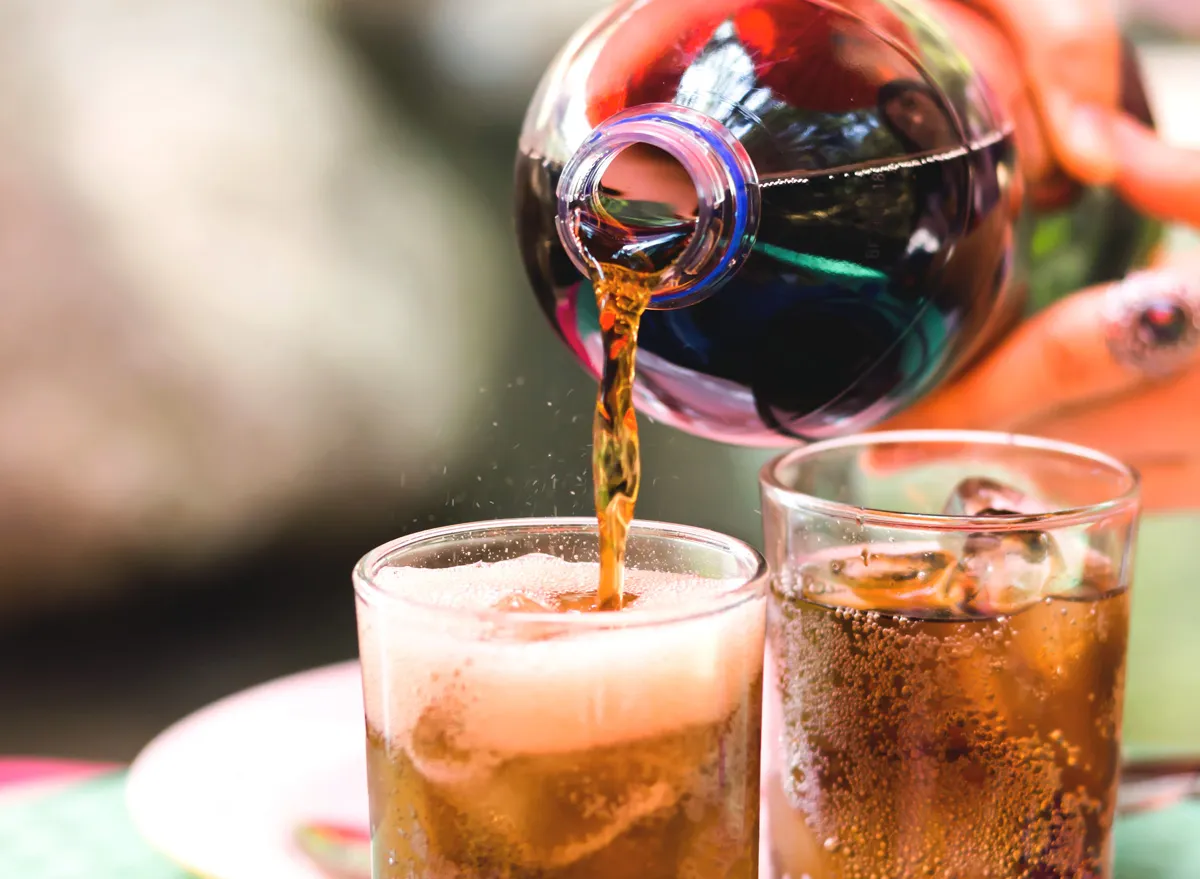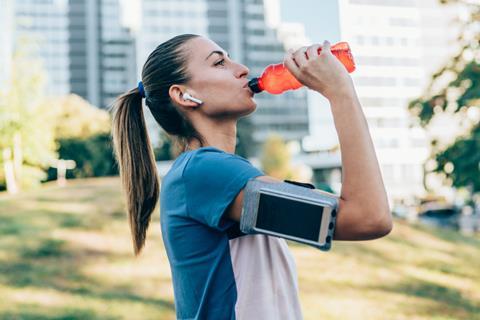It's not news that Americans are persistently drained. As per a Gallup survey, 1 out of 3 grown-ups, around 84 million individuals, neglect to get the base seven hours of closed eye a night suggested by the American Institute of Rest Medication, and upwards of 70 million have a dozing issue, as per the American Rest Apnea Affiliation.
That might make sense of the madness Americans have for caffeinated drinks. These refreshments, which guarantee to support energy, increment actual endurance, and upgrade mental sharpness, rank simply behind multivitamins at the first spot on the list of the most famous enhancements taken by teenagers and youthful grown-ups, reports the Public Community for Correlative and Integrative Wellbeing (NCCIH).
Disregarding their prevalence, notwithstanding, there are many inquiries regarding whether these beverages follow through on those cases, and whether they do so securely. Different packaged caffeinated drinks contain various degrees of caffeine and different energizers, and in some cases different fixings. You're in good company assuming you've at any point contemplated whether caffeinated drinks are awful for you — and provided that this is true exactly how terrible?
"In the event that somebody is managing a persistent absence of rest, polishing off a caffeinated drink might furnish them with an intense shock of energy," says Sam Schleiger, RDN, a useful medication enrolled dietitian and the proprietor of Essentially Fed Practical Nourishment in Elkhorn, Wisconsin. In any case, that transitory fix might hurt more than great by impeding rest and making an endless loop. Furthermore, there are various ailments that have exhaustion and unfortunate rest as side effects, which is the reason Schleiger prescribes counseling a medical services professional to research potential main drivers and preclude any basic circumstances.
What Precisely Is a Caffeinated Drink?
The refreshment passageway is progressively packed with a wide range of useful beverages, including prebiotic soft drinks and adaptogenic drinks that highlight home grown fixings like CBD and ginseng. Caffeinated drinks are not the freshest in the class, yet they are among the most well known. In 2023, U.S. deals of caffeinated drinks added up to around $18.5 billion, as per Statista.
These refreshments, which incorporate brands like Beast, Bang, Rockstar, and Red Bull, will generally come in jars with smooth, striking bundling and are frequently planned with caffeine and different energizers. Sports drinks, then again, may show up correspondingly smooth and brilliantly shaded, however are frequently packaged and intended to engage more dynamic shoppers with fixings that advance hydration and supplant electrolytes.
Under the U.S. Food and Medication Organization (FDA) characterization framework, sports drinks are gathered with different refreshments as "food" and dependent upon severe naming regulations, while caffeinated drinks are viewed as enhancements, which have more careless marking and security guidelines. In any case, the FDA leaves the choice of whether an item is a games drink or a caffeinated drink up to producers, as per the US Hostile to Doping Organization. There is no authority survey strategy for these marking rehearses, either, and that implies there are a ton of items on racks that could contain sketchy fixings or risky measures of them.
Caffeinated beverages can be sold in 12-or 16-ounce (oz) jars or containers, similar to soft drinks, as well as 2 or 2.5 oz sizes, usually called energy shots, per the NCCIH. These more modest items are more focused and frequently have a measure of caffeine like that in a standard beverage.
What Is in Caffeinated Beverages?

Caffeinated drinks are totally figured out in an unexpected way, so the fixings and sums differ extraordinarily among brands, yet all give a jolt of energy by means of an energizer of some sort or another, normally caffeine. The sum can fluctuate significantly: For instance, a 8 oz mug of espresso ordinarily has 100 milligrams (mg) of caffeine, while a 16 oz caffeinated drink can contain somewhere in the range of 70 to 240 mg, reports the NCCIH. (A 12 oz jar of juiced soft drink times in at 35 mg.)
Numerous caffeinated drinks contain extra energizers, including those named "normal," yet that doesn't be guaranteed to make them any better. Guarana, one normal fixing in caffeinated drinks, is a plant separate that has been utilized as an energizer and contains caffeine, however has likewise been connected to quake, nervousness, unsettling, disarray, hypertension, and lack of hydration in enormous dosages, per the Public Library of Medication. Yohimbe is one more typical fixing added to caffeinated drinks. It comes from an evergreen tree in western and focal Africa and is accounted for to upgrade athletic execution, weight reduction, circulatory strain, and that's just the beginning, yet there is restricted examination on the reality of those cases, per the NCCIH.
Caffeinated drinks likewise will generally be high in sugar — it's habitually recorded second after water among the fixings, reports Harvard T.H. Chan School of General Wellbeing. The first Green Beast Caffeinated drink, for instance, contains 160 mg of caffeine and 54 grams (g) of sugar in a 16 oz can. That sum far surpasses the American Heart Affiliation's suggestion of something like 36 g or 9 teaspoons (tsp) of sugar a day for men, and 25 g or 6 tsp each day for ladies.
Sugar is an energy source, yet at the same not the best kind. A lot of sugar can have negative wellbeing results and can prompt coronary illness, stoutness, greasy liver sickness and that's only the tip of the iceberg, as per the discoveries of an umbrella survey distributed in BMJ in April 2023. The outcomes likewise show that polishing off sugar from soft drinks, caffeinated drinks, or refined carbs prompts an expansion in glucose in the circulation system that spikes energy prior to prompting an accident, and that implies sugar is definitely not a manageable jolt of energy.
Nourishing Disadvantages
All the additional sugar in caffeinated drinks is known to be risky for a solid eating regimen. In any case, a sans sugar caffeinated drink is certainly not a decent arrangement, all things considered. A review distributed in BMJ in 2022 showed a relationship between counterfeit sugars, including aspartame, acesulfame potassium, and sucralose, and an expanded the gamble of cardiovascular illnesses. In 2023, the World Wellbeing Association made an authority proposal against the utilization of non-nutritive sugars, refering to an absence of proof to help their utilization for weight reduction or to decrease the gamble of ongoing illnesses, and, surprisingly, recommended potential unwanted wellbeing impacts from their drawn out use. Despite this proof, the FDA keeps up with that sugar substitutes are protected.
Unreasonable measures of caffeine and different energizers found in caffeinated beverages can likewise have hindering wellbeing impacts. Numerous caffeinated drinks contain elevated degrees of caffeine or consolidate different energizers, and aren't expected to name the specific amount, so it tends to be hard to know precisely the amount you're polishing off, per the NCCIH. The FDA prompts individuals not to polish off in excess of 400 mg of caffeine each day, so in one caffeinated drink you could ingest the greater part the proposed everyday cutoff.
The amount Is Protected to Drink?
On account of the great measure of caffeine and different energizers, caffeinated drinks aren't refreshments to consistently drink. "While I don't frequently suggest it, polishing off a periodic caffeinated drink with some restraint is by and large thought to be acceptable as far as the vast majority," says Schleiger. She says "intermittent" can be emotional and may mean one time each week or a couple of times each month, contingent upon the individual.
It's critical to be aware assuming you have any ailments that contraindicate over the top measures of caffeine. "Hypertension, a sleeping disorder, uneasiness or misery are a couple of conditions when an over-burden of caffeine can neutralize you," says Sylvia Klinger, RDN, the pioneer behind Hispanic Food Correspondences in Hinsdale, Illinois.
On the off chance that you experience the ill effects of a sleeping disorder, try not to go after a caffeinated drink as a way to remain alert. "People with sleep deprivation or other rest issues ought to try not to polish off caffeinated drinks, particularly in the late evening or night, to forestall further disturbance of rest designs," says Schleiger.
She calls attention to that the impacts of caffeinated beverages can shift from one individual to another, and those with explicit wellbeing concerns might be more vulnerable to unfavorable responses. On the off chance that you have an ailment and are unsure in the event that polishing off caffeinated drinks is smart, talk with a clinical expert first. Any individual who is pregnant or nursing, or who has an aversion to caffeine, is encouraged to keep away from caffeinated drinks too.
Regardless of whether you have a basic ailment, drinking an excessive number of caffeinated beverages can cause medical problems. "Exorbitant utilization of caffeinated beverages can prompt negative wellbeing impacts, including expanded pulse, hypertension, sleep deprivation, tension, and stomach related issues," says Schleiger. "A few people might be more delicate to caffeine and experience these impacts at lower portions."
Like other charged refreshments, caffeinated drinks are not suggested for youngsters more youthful than 12, as indicated by the American Institute of Pediatrics, which additionally expresses that adolescents ought to try not to polish off them. Notwithstanding these admonitions, numerous caffeinated drinks are promoted to these very age gatherings. The brand Prime Energy experienced harsh criticism for focusing on youngsters, NBC News detailed.
"Youngsters and teenagers with specific medical issue, for example, heart conditions or uneasiness problems, might be more vulnerable to the adverse consequences of caffeinated drinks," says Schleiger. "Guardians ought to talk with medical services suppliers to decide whether such drinks are ok for their kid."
FAQs
Is it bad to drink a energy drink everyday?

A few reports have proposed that caffeinated drink might add to ischemic stroke and lead to epileptic seizures. Visualizations may be seen in people that consume in excess of 300 mg of caffeine each day. Elevated degrees of cortisol that follow caffeine admission could make sense of this.
How many energy drinks a day are OK?
For the most well known, mass-promoted caffeinated drinks out there, a constraint of two servings each day appears to be sensibly ok for most solid grown-ups. For non-concentrated fluid caffeinated drinks (like Red Bull, Beast, Rockstar, and so on), this compares to around 16 ounces (500 ml) each day.
What are 10 negative effects of energy drinks?
Parchedness (insufficient water in your body).
Heart complexities (like unpredictable heartbeat and cardiovascular breakdown).
Uneasiness (feeling apprehensive and nervous).
A sleeping disorder (incapable to rest).
Is it safe to drink 5 energy drinks a day?
Caffeine Over-burden: These caffeinated drinks ordinarily contain a lot of caffeine. Consuming five in a day would bring about a very high caffeine consumption, which can prompt side effects, for example, expanded pulse, unsteadiness, uneasiness, and anxiety.
